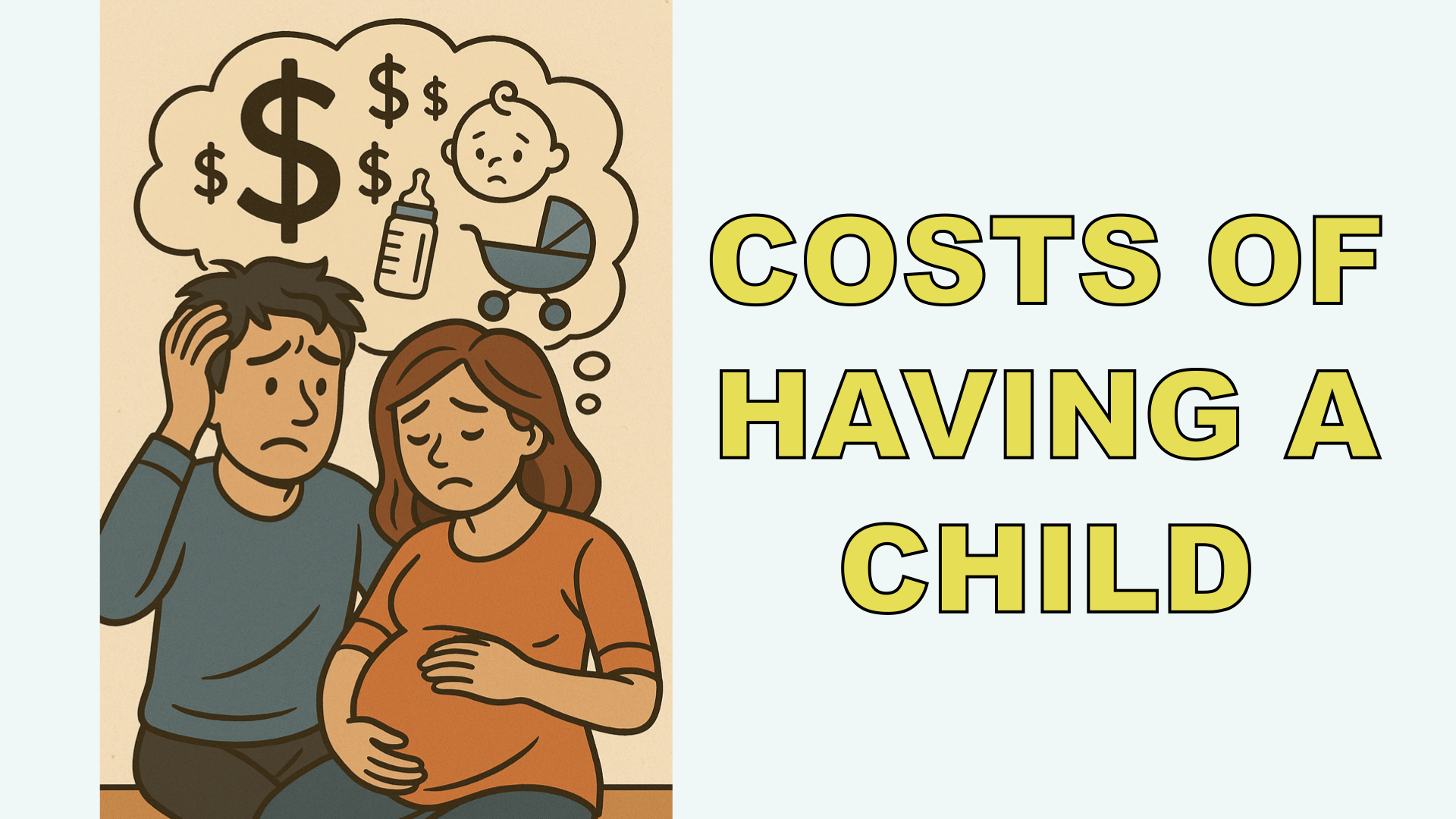Babies aren’t cheap! From hospital bills and diapers to gear, food, and childcare, the costs can add up fast—and surprise even the most prepared parents.
As someone just weeks away from becoming a first-time parent, I’ve been deep in the numbers lately. I wanted to know: How much does it really cost to have a baby in the U.S.? And what should we expect financially during that chaotic (and beautiful) first year?
In this post, I’ll break down what I’ve learned about the true costs of having a baby, including:
- Real-world medical and delivery expenses
- Nursery and gear estimates
- Monthly baby costs (like diapers, formula, and childcare)
- Why prices are rising—and what you can do to plan ahead
If you’re trying to build a baby budget or just want to feel a little more financially grounded, you’re in the right place. Let’s get into it.
1. One-Time Medical & Delivery Costs of a Newborn Baby
Even before your baby arrives, expenses begin to stack up. In the U.S., the average cost for prenatal care, delivery, and postpartum care is $18,865 out-of-pocket—assuming no full insurance coverage.
Add optional extras like hospital upgrades or complications, and your prenatal-to-newborn medical costs can exceed $20,000.
2. One-Time Baby Gear & Nursery Essentials
Expect to spend between $2,000–$7,000+ on nursery setup and newborn gear . Typical items include:
- Crib/bassinet: $80–$400
- Car seat/stroller: $150–$1,000+
- Diapers, clothes, sheets, breast pump, changing table, babyproofing tools
Tip: Look for secondhand sales or online parenting groups to save hundreds on big-ticket items.
3. Monthly Recurring Expenses
Once your baby arrives, expect ongoing costs like formula, diapers, food, health, and childcare. Monthly averages range from $1,100–$2,500+, depending heavily on childcare needs.
- Formula & food: $40–$300/mo
- Diapers & wipes: $20–$270/mo
- Childcare: from $650/mo (home-based) to $2,000+ (center-based in metro areas)
4. Annual Totals: A Broad Picture
Estimates fall into a wide range. Here’s some guestimates from popular sources covering baby expenses:
- $14,680–$36,050+ for the first year (TrustedCare)
- $18,761 per year to raise a child (USDA/Intuit, excluding birth)
- $20,384 in baby-related expenses during year one
- Lifetime cost: ~$310,000 to raise a child through age 17
In high-cost cities like Boston or San Francisco, annual costs reach $39,000+.
5. Breaking Down Costs by Category
Here’s a snapshot of how typical families spend annually (excluding birth):
- Housing: 29–32%, approx. $5,000–$6,000
- Food: 15–24%, around $3,300
- Childcare/Education: 16%, $3,000+ up to $20,000+ in metro areas
- Transportation: 10–15%, $2,800–$3,300
- Healthcare: 8–9%, ~$1,800/month for routine care
6. Why Are Costs Rising So Fast?
- Childcare inflation: up 50–52% between 2023–2025
- Tariffs: U.S. imports like strollers, car seats, furniture grew more expensive due to recent tariffs
- Housing squeeze & wage stagnation are driving overall family financial pressure
It’s no surprise why a lot of younger adults are opting for less or even no kids given increased costs of being parents along with flattening incomes.
7. Smart Tips for Financial Planning to have a baby
- Build a baby budget: separate one-time vs. monthly expenses.
- Insurance check-up: Max out HSA and FSA contributions.
- Buy used where safe: car seats, bassinets, clothes.
- Evaluate care options: home vs center daycare, family care, nanny-shares.
- Emergency fund: aim for 3–6 months of living expenses.
- Policy planning: look into paid leave, flexible childcare assistance, college saving plans.
*Note – These are a lot of things financial planners suggest, I wish I could say I’m doing all of them, but honestly I’m surviving and trying to do as much as I can. So if you look at the above list and think, “yeah right!”, you’re not alone.
8. Sample First-Year Budget Table
| Category | Estimated Cost |
|---|---|
| Medical & birth | $18,000–$20,000 |
| Gear & nursery | $2,000–$7,000+ |
| Recurring monthly | $1,100–$2,500+/mo |
| Annual total (yr 1) | $15,000–$40,000+ |
Final Thoughts
The cost of bringing a baby into your life is significant—and rising. But data shows that with intentional planning—tapping into savings tools, buying smarter, and structuring care—you can manage these expenses without stretching your finances to breaking point. And the joy (and inevitable mess) of that first year? Worth it.
